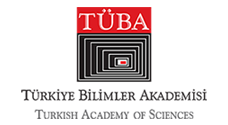Overview and Classification of Successful Silicon Valley Start-Ups: Statistical Analysis and Development of Recommendations

Overview and Classification of Successful Silicon Valley Start-Ups: Statistical Analysis and Development of Recommendations
The relevance of the study is conditioned by the fact that today’s business processes are predisposed to modernisation, which consists in the transition of the economy to an innovative path of development, in connection with which businessmen should identify and solve real consumer problems and resort to innovative activities using start-up projects. In this regard, the purpose of the study is to consider successful Silicon Valley start-ups, their industry classification, statistical analysis, and the development of recommendations. The leading approach to the investigation of this problem is a combination of synthesis and analysis, which, complementing each other, allow for a comprehensive consideration of the process of optimising the innovative activity of enterprises through the successful implementation of start-up projects. The results obtained within the framework of this study are the consideration of the essence of start-ups and the key features of Silicon Valley, the identification of statistics of their failures, familiarisation with the successful start-ups classification, and the development of recommendations for successful creation of similar ones. The results of this study and the formulated conclusions are of practical value both for students studying the features of innovation management, and for entrepreneurs whose sphere of interests covers the innovative and scalable product development, its successful implementation, which besides increase of the start-up creator income, also make a significant contribution to the development of many areas, including the sector of education, medicine, finance, security, communications, ecology, trade, and others, contributing in every possible way to technological progress anywhere in the world.
